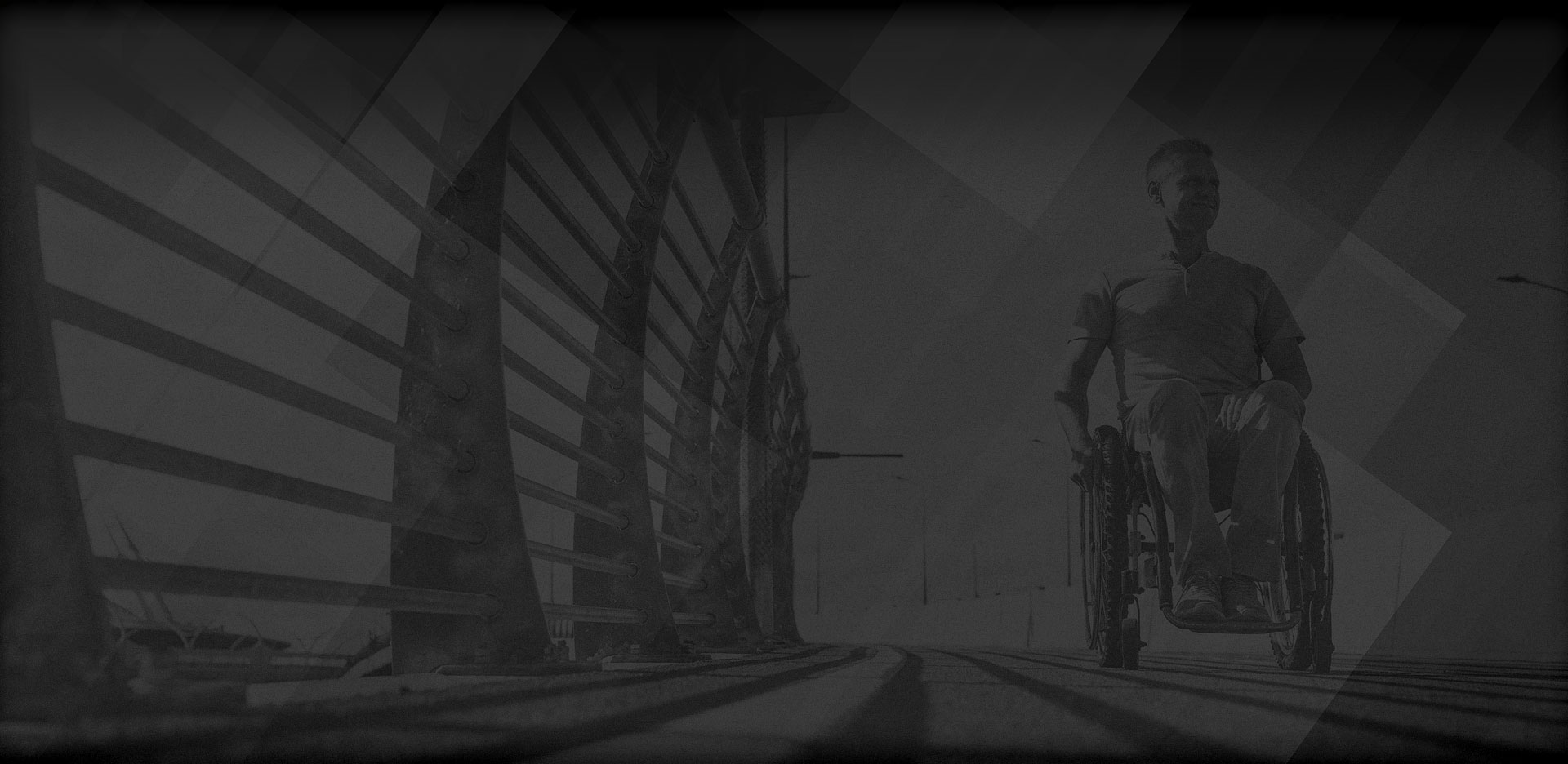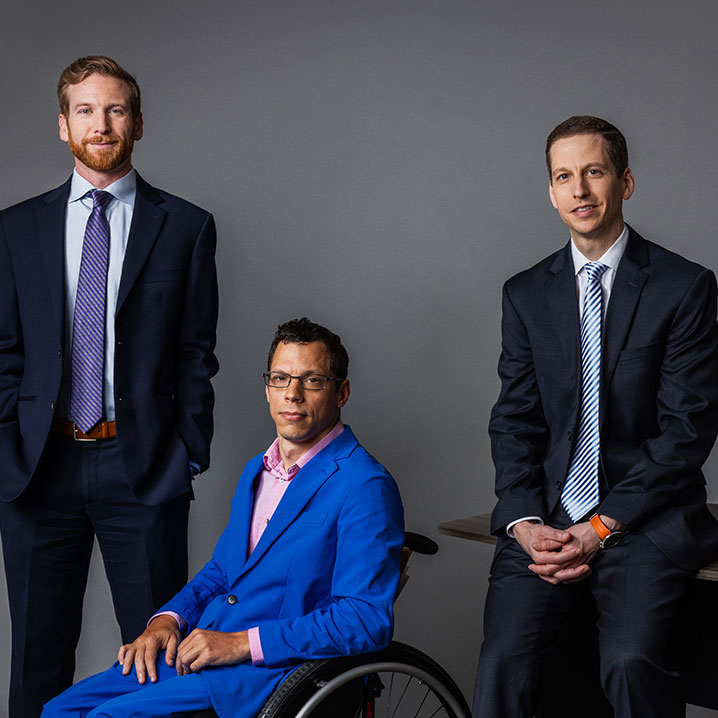
Dallas Spinal Cord Injury Attorneys
At Colin B. Bober and Associates, PC, we represent victims of tragic accidents involving spinal cord injuries.Our experienced team of Dallas attorneys is passionate, determined, and well-equipped to help you navigate the entire legal process. We are committed to fighting for your rights and helping you secure the maximum compensation you are owed.
If you have suffered a spinal cord injury due to someone else’s negligence, we are here to help.
Contact us online or call our office at (214) 974-4180 to find out how our firm can assist you during this difficult time. You can rely on Colin B. Bober and Associates, PC to provide compassionate counsel coupled with results-driven representation.
Spinal Cord Injury Statistics
A spinal cord injury is a serious, potentially life-altering injury that can lead to significant health complications. Understanding the spinal cord injury trends in the United States is a crucial part of raising awareness. Remember, the impact of these statistics are real people who live with the effects of these injuries.
The annual incidence of traumatic spinal cord injury (SCI), not including those who die prior to receiving medical attention, ranges from 50 to 70 cases per one million people in the U.S., or approximately 17,000 new SCI cases each year. Vehicle crashes are the leading cause of SCI.
Approximately 294,000 individuals in the U.S. are living with a spinal cord injury.
An estimated 17,810 new SCI cases occur in the United States each year. That breaks down to 457 new cases every day in this country alone.
More than half (54%) of SCI patients are between the ages of 16 and 30. The average age at injury is 43.
SCI disproportionately affects males: Approximately 81% of all cases of SCIs are males.
Among different causes of SCI in the U.S., traffic crashes are the leading cause of SCI for people under the age of 65 — accounting for 38% of all new SCIs in that age group. Falls are the leading cause of SCIs for people 65 and older, accounting for 43% of all new SCIs in their age group.
The average length of hospitalization for the initial procedure(s) to treat acute SCI is 11 days. The average ICU stay is 15 days.
How Common Are Car Accidents & Workplace Accidents That Cause Spinal Cord Injuries?
Car and truck wrecks and workplace accidents are among the most common causes of spinal cord injuries. In both contexts, these devastating injuries arise out of careless, reckless, or negligent conduct.
- According to the National Spinal Cord Injury Statistical Center, here’s how the most common causes of spinal cord injuries (SCIs) break down as percentages:
- Vehicular accidents: 47% of SCIs are led by a motor vehicle-related incident, like a car wreck.
- Slip-and-falls: A slip, trip, and/or fall without a related workplace or traffic “incident” leads to 23% of these types of catastrophic injuries.
- Workplace mishaps: The site of the accident where the SCI is suffered is a workplace for 22% of these incidents. Examples include industrial workplace accidents.
- Violent acts: Eight percent (8%) of SCIs occur when a victim is intentionally harmed by another person. For example, victims of stabbings and gunshot wounds are likely to suffer severe SCIs. Canes, crutches, and walkers are associated with two percent (2%) of accidents that cause SCIs.
Spinal Cord Injury Symptoms
There are many types of spinal cord injuries, including complete and incomplete injuries. A “complete” SCI means that all feeling and movement below a certain point is lost, whereas an “incomplete” SCI means that the victim can still feel some sensation and is able to move.”
Many patients suffer from paralysis due to spinal cord injuries depending on the location and nature of the injury.
Here are some common symptoms of a spinal cord injury:
- Loss of movement
- Loss of sensation
- Pain or stiffness
- Headache
- Fatigue
- Confusion
- Dizziness
- Lack of coordination or loss of balance
- Chills, sweating, or excessive sweating
- Tingling or numbness in the hands or feet
What is Paraplegia & Tetraplegia?
Paralysis may be referred to as “tetraplegia” or “quadriplegia” when patients have impairment in all four limbs, meaning both the arms and legs. Tetraplegics often have limited control over their body, so they require adaptations and devices to help them live comfortably.
Paralysis can also occur when a patient is rendered “paraplegic.” Those with paraplegia suffer a loss of sensation and movement in their legs, causing them to be confined to a wheelchair. However, while arm and hand function may still be good, waist level functionality may be limited.
How Are Spinal Cord Injuries Diagnosed & Treated?
About half of all victims of SCIs are diagnosed with the condition before they even leave the hospital. If you are not diagnosed with an SCI during your hospitalization, it may take several months.
There are different diagnostic methods for determining whether you have an SCI, ranging from MRIs to CT scans to X-ray imaging. Doctors may also test your sensation and reflexes, and you may undergo other tests, such as urodynamics.
A doctor will also try to determine the severity of your SCI. There are five main types of injury, from complete to partial, with varying effects on laying, motor function, and coordination. A complete SCI of the C4 vertebra, for example, means the patient is paralyzed from the neck down. An incomplete SCI at the L4 vertebra, however, may result in leg weakness and impaired muscle movement. Other types of incomplete injury include anterior cord syndrome, central cord syndrome, Brown-Sequard syndrome, and more.
Post-diagnosis and release from the hospital, your primary care doctor can address other health conditions or day-to-day questions you may have about living with an SCI. There are also rehabilitation programs available that involve physical and occupational therapists who can help you with various tasks or exercises to combat the limitations of your SCI. There may also be neurological centers or rehab hospitals closer to where you live that you can visit.
Finally, there are support groups and organizations, such as the Spinal Cord Injury Association, that provide patients and their families with resources, updates, news, and more on living well with an SCI.
Common Causes of Spinal Cord Injuries
Car & truck accidents, slip and fall accidents, and work-related accidents are the most common causes of spinal cord injuries (SCIs), although they can also occur in other types of accidents in which a person suffers trauma to the neck or back.
SCIs can be catastrophic, leaving victims with permanent damage and a lifetime of pain. This means that it is especially important to work with an attorney who knows how to properly calculate the long-term financial impact of a spinal cord injury including the cost of medical treatment, personal care, specialized equipment, and other long-term needs. At Colin B. Bober and Associates, PC, we are here to handle your claim so you can focus on your recovery.
How Do Spinal Cord Injuries Happen?
Spinal cord injuries can cause paralysis, traumatic brain injury, or other serious cognitive issues in a matter of seconds. The moment a victim suffers a traumatic incident, like a car bump, a workplace accident, a shooting, etcetera, it is imperative to call emergency services so they can arrive on site to transport them safely to the nearest ER. Speedy medical attention can mean the difference between life and death or catastrophic spinal damage and less severe injuries.
How Can I Prevent a Spinal Cord Injury?
While many SCIs are not preventable, there are some things you can do to help reduce your chance of suffering such an injury.
The Mayo Clinic outlines some injury prevention strategies for both adults and children to follow:
- Wear a seat belt in a car or never be intoxicated and drive.
- Properly secure children in an age-appropriate car seat.
- Don’t text and drive or engage in any distracting behaviors behind the wheel.
- Maintain a safe speed when behind the wheel and obey all traffic laws.
- When utilizing outdoor recreational vehicles (e.g. bicycles, scooters, etc.), exercise caution and know the laws concerning those vehicles.
- Never dive into a pool of water unless you are familiar with how deep it is and how easily you can clear the water.
- Never swim alone in any body of water, regard how skilled of a swimmer you are.
- Children should always be supervised when in or near bodies of water.
Why Choose Colin B. Bober and Associates, PC
We know a spinal cord injury can be overwhelming, and you may be unsure about where to turn. Colin B. Bober and Associates, PC handles all types of spinal cord injury cases and can help you understand your options and make a plan.
Since 1997, our Dallas-based legal team has successfully represented clients in a wide variety of spinal cord injury cases. Our Dallas trial attorneys are prepared to go above and beyond to fight for you, whether that means working with you to enter into a favorable settlement or representing you in court. We have long-standing relationships with many top medical professionals and expert witnesses and are known for incorporating cutting-edge technology into our cases. Learn more by contacting us today.
Contact us online or call our office at (214) 974-4180 to find out how our firm can assist you during this difficult time. You can rely on Colin B. Bober and Associates, PC to provide compassionate counsel coupled with results-driven representation.

Cases We Handle






Why Choose Colin B. Bober and Associates?
-
Free ConsultationsGet started on your case with a confidential, no-obligation consultation.
-
Over $50 Million Recovered
We have a history of getting results for our clients.
-
1-on-1 Connection To Your LawyerYour attorney will take you through your case step by step. Not a case manager.
-
We Can Help You Get To Treatment
If your car is totaled or is pending repairs and you don’t have a ride to your medical appointments, we can help you get there with Uber Health.
-
This Is About YouHigh volume firms are in it for the money. We will take the time to explain your options to you to allow you to make the best decisions for yourself.
-
Your Own Personal Case TrackerYou'll get access to our personalized app for direct real-time communication with the firm. It will also track your case's progress and provide updates.















